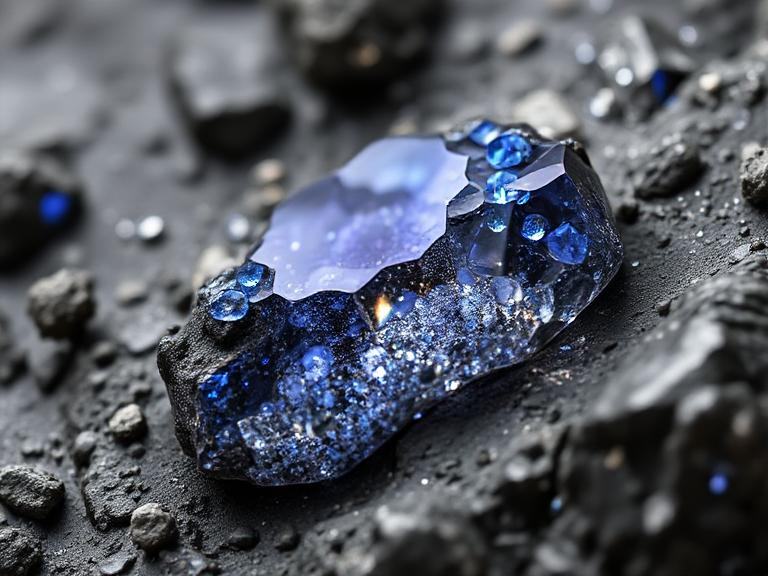Mica is a versatile mineral with wide applications in industries like electronics, insulation, cosmetics, and construction. Among the many suppliers of mica, AFM mica—especially from resource-rich regions like Pakistan, Afghanistan, India, and Africa—offers cost-effective and high-quality solutions. In this article, we explore the pricing of AFM mica, key factors influencing the cost, different mica product types, and a highlight of AUKI MICA, a high-end mica sheet insulating materials supplier.
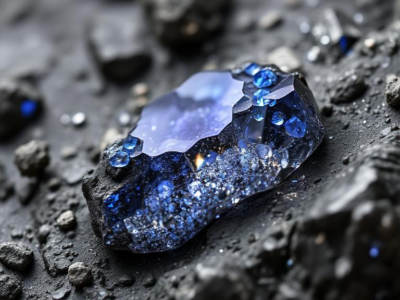
Table of Contents
1. Understanding Mica and Its Uses
3. Factors That Affect the Cost of AFM Mica
4. Common AFM Mica Types and Their Prices
5. AUKI MICA: Premium AFM Mica Supplier
6. Tips for Buying Mica at the Best Price
1. Understanding Mica and Its Uses
Mica is a naturally occurring silicate mineral known for its thermal resistance, dielectric strength, flexibility, and luster. It is widely used across industries for both functional and aesthetic purposes.
Major Applications of Mica
- Electronics: Used in capacitors, transistors, and semiconductors for insulation.
- Automotive: Applied in brake pads, clutches, and gaskets due to heat resistance.
- Cosmetics: Crushed mica powder adds shimmer in makeup products.
- Construction: Insulating and reinforcing material in concrete and roofing.
- Industrial Insulation: Mica sheets and blocks insulate motors and transformers.
2. What is AFM Mica?
AFM mica refers to mica materials sourced from Afghanistan, Pakistan, and neighboring regions, known for their rich mineral deposits and high-purity mica. Due to the proximity to natural resources and cost-effective labor, AFM mica provides a competitive advantage in pricing while maintaining international quality standards.
These materials are often exported to China for further processing into premium mica products, which are then distributed to global markets.
3. Factors That Affect the Cost of AFM Mica
Several key factors influence the price of AFM mica. Understanding these variables can help buyers estimate and negotiate more effectively.
Main Cost Influencers
- Type and Grade: Different forms of mica (flakes, blocks, powders) vary in cost depending on processing and purity.
- Processing Level: Raw mica is cheaper than refined mica sheets or powders.
- Source Location: Mica from Afghanistan and Pakistan tends to be more affordable than from other regions due to abundant resources.
- Market Demand: High demand from electronics and insulation industries can drive up prices.
- Export & Transport: Shipping to countries like the USA or Europe adds freight and duty charges.
- Customization Requirements: Tailored thickness, cutting, or lamination increases final pricing.
4. Common AFM Mica Types and Their Prices
Pricing varies significantly based on the type and form of mica being purchased. Below is an overview of common AFM mica types and their general price ranges.
Mica Flakes
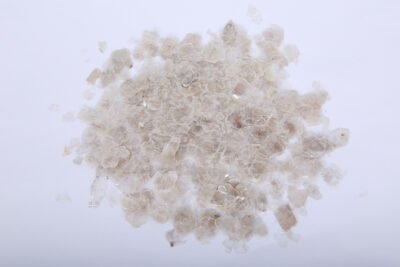
Used in joint compounds, paints, and rubber:
- Price Range: $200 – $500 per metric ton
- Grade: Coarse and fine flakes available
Mica Blocks
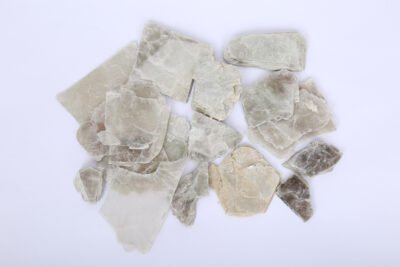
Ideal for insulation in electrical devices:
- Price Range: $800 – $1,500 per metric ton
- Grade: V1-V4; V1 being the highest quality
Mica Black
A specialty variety of phlogopite mica known for high thermal resistance:
- Price Range: $1,000 – $2,000 per ton
- Best For: High-temperature applications
Mica Powders
Used in cosmetics, paints, and plastics:
- Price Range: $300 – $700 per ton
- Mesh Sizes: 60 mesh to 325 mesh depending on use
Phlogopite
Brownish-golden mica used in electrical insulation:
- Price Range: $800 – $1,500 per metric ton
- Advantages: Excellent heat resistance and dielectric strength
Mica Sheets
Processed sheets for insulation and industrial use:
- Price Range: $2 – $10 per piece (based on size and thickness)
- Applications: Electronics, motors, furnaces
Note: These are estimated market prices. For real-time quotes, it is best to contact a supplier like AUKI MICA.
5. AUKI MICA: Premium AFM Mica Supplier
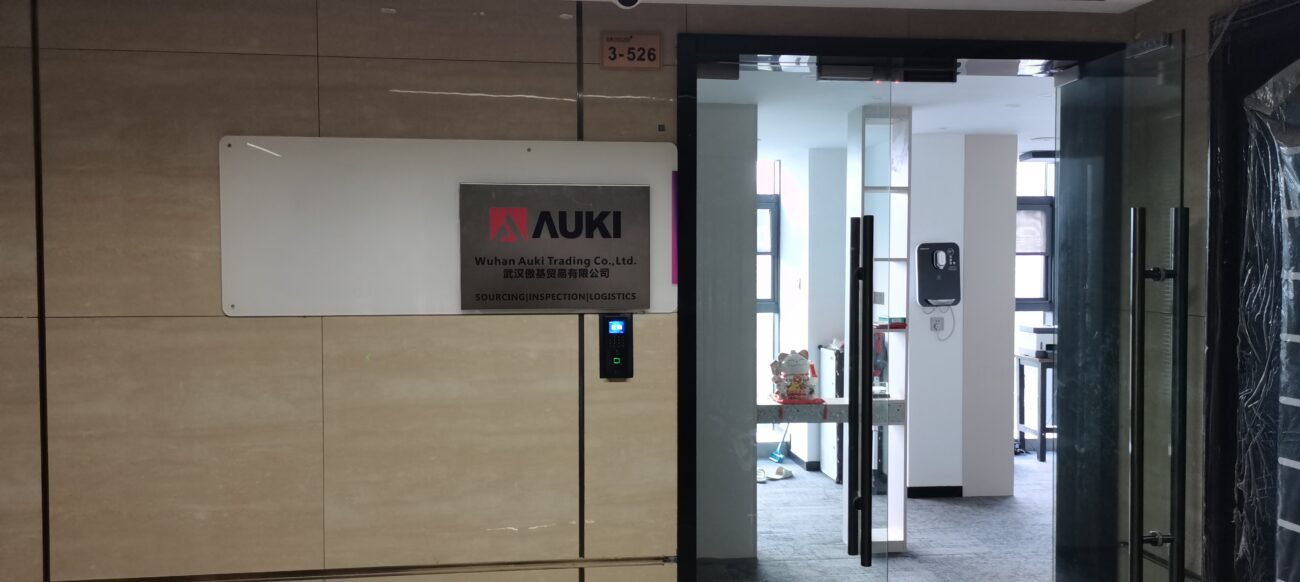
AUKI MICA stands out as a premium supplier of high-end mica insulating materials. The company sources natural mica from Pakistan, Afghanistan, India, and Africa, ensuring quality raw materials and ethical mining practices.
Why Choose AUKI MICA?
- Direct access to mica mines in Afghanistan and Pakistan for competitive pricing.
- Close partnerships with V1-grade mines in India and Africa.
- Processed in **Chinese factories** equipped with advanced cutting, laminating, and polishing equipment.
- Provides **custom mica solutions** tailored to electrical, automotive, and construction industries.
- International export services with reliable logistics and documentation.
Product Line at AUKI MICA
If you’re looking for a custom mica quote, AUKI MICA can help deliver competitive prices and fast production for global customers.
6. Tips for Buying Mica at the Best Price
How to Get Value for Your Mica Purchase
- Buy in bulk: Larger orders reduce per-unit costs.
- Choose reliable suppliers: Work with companies like AUKI MICA that control the full supply chain.
- Specify technical requirements clearly: Avoid overpaying for unnecessary grades or finishes.
- Compare FOB and CIF rates: Shipping terms affect final pricing, especially for international orders.
- Request samples: Ensure quality meets expectations before large orders.
Summary Table
Here’s a concise summary of mica types, prices, and key uses:
| Mica Type | Price Range (USD) | Main Application | Comments |
|---|---|---|---|
| Mica Flakes | $200 – $500/ton | Paints, joint compound | Available in coarse and fine sizes |
| Mica Blocks | $800 – $1,500/ton | Insulation, electrical | Best quality: V1 blocks |
| Mica Black | $1,000 – $2,000/ton | Heat-resistant insulation | Phlogopite variety |
| Mica Powders | $300 – $700/ton | Cosmetics, plastics | 60–325 mesh available |
| Phlogopite | $800 – $1,500/ton | Dielectric insulation | Brown-gold color |
| Mica Sheets | $2 – $10/sheet | Industrial insulation | Custom thickness options |

